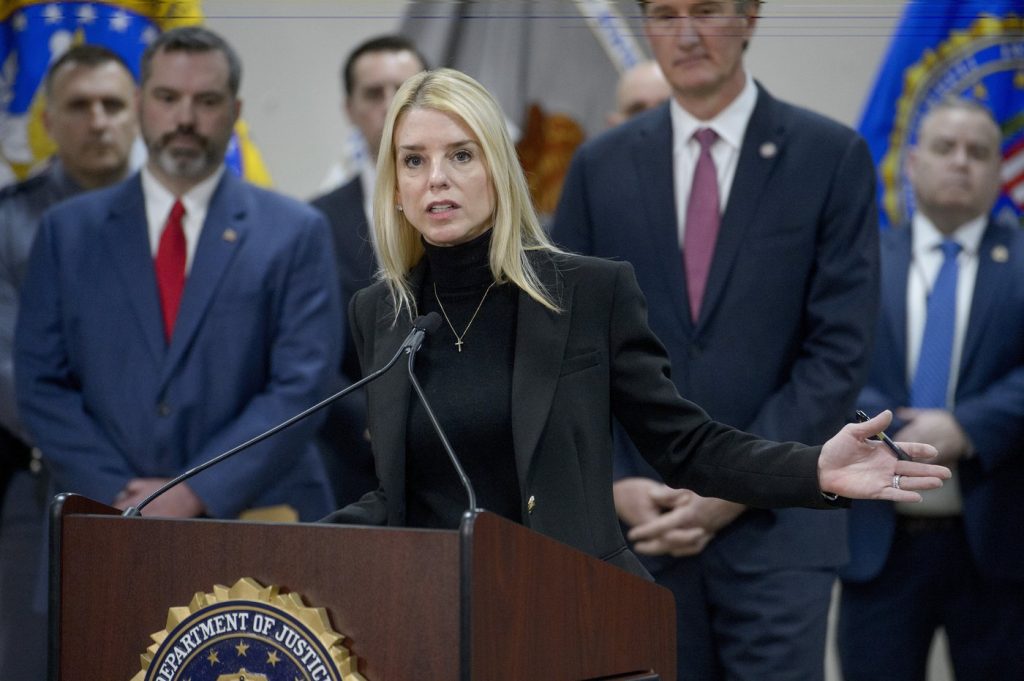The Justice Department has decided to drop a criminal case against the alleged East Coast leader of the MS-13 gang, Henrry Josue Villatoro Santos, merely two weeks after he was charged. Instead of pursuing prosecution in the U.S., the government plans to deport him. This decision has sparked controversy, as Villatoro Santos' lawyer is contesting the prosecutors' request for case dismissal, claiming that his client faces imminent deportation without due process, potentially leading to his incarceration in a prison in El Salvador.
Villatoro Santos was arrested in late March 2025 in the suburbs of Washington, D.C., an event heralded by the Trump administration as a significant success in its campaign against violent street gangs labeled as "foreign terrorist organizations." High-profile figures, including Attorney General Pam Bondi, FBI Director Kash Patel, and Virginia Governor Glenn Youngkin, publicly lauded the arrest during a press conference. Bondi stated that Villatoro Santos was residing in the U.S. illegally and emphasized that he would not remain in the country for long.
The charges against Villatoro Santos included illegal gun possession, as several firearms were found in his home. While investigators indicated the presence of "indicia of MS-13 association" at the scene, prosecutors have yet to provide substantial evidence regarding his alleged gang affiliations in court filings.
In a court proceeding, prosecutors informed the judge that they wished to dismiss the case, indicating that “the government no longer wishes to pursue the instant prosecution at this time.” However, Villatoro Santos' lawyer has called for the judge to delay ruling on this dismissal request, expressing concerns over the potential for an unlawful deportation orchestrated by ICE. According to defense attorney Muhammad Elsayed, Villatoro Santos risks being sent back to El Salvador, where he could be subjected to detention in notoriously harsh prison conditions, thereby stripping him of any opportunity to contest his deportation.
Elsayed warned that the possibility of his client facing a "life sentence without any due process” is significant, urging the court to consider the unusual circumstances surrounding this case. He argued that the heightened scrutiny and public allegations regarding Villatoro Santos' gang leadership could exacerbate the risks associated with his rapid removal from the U.S.
Under the Trump administration, approximately 260 individuals have already been deported to El Salvador, particularly to the notorious Terrorism Confinement Center, or CECOT prison. Reports indicate that over a hundred of these deportations were conducted under the Alien Enemies Act, an antiquated law utilized to target suspected gang members. However, families of some deported individuals contend that their loved ones are not affiliated with any gangs.
Concerns over the administration's deportation practices have been raised, notably after it acknowledged that one of the deported individuals had been mistakenly sent to the El Salvador prison. Despite calls from attorneys to rectify this error and return the individual to the U.S., the government has stated it has no means to facilitate that person's return.
These developments represent a complex intersection of immigration enforcement, national security rhetoric, and the rights of individuals facing expedited deportation, raising important questions about due process and the treatment of individuals accused of gang affiliations.











